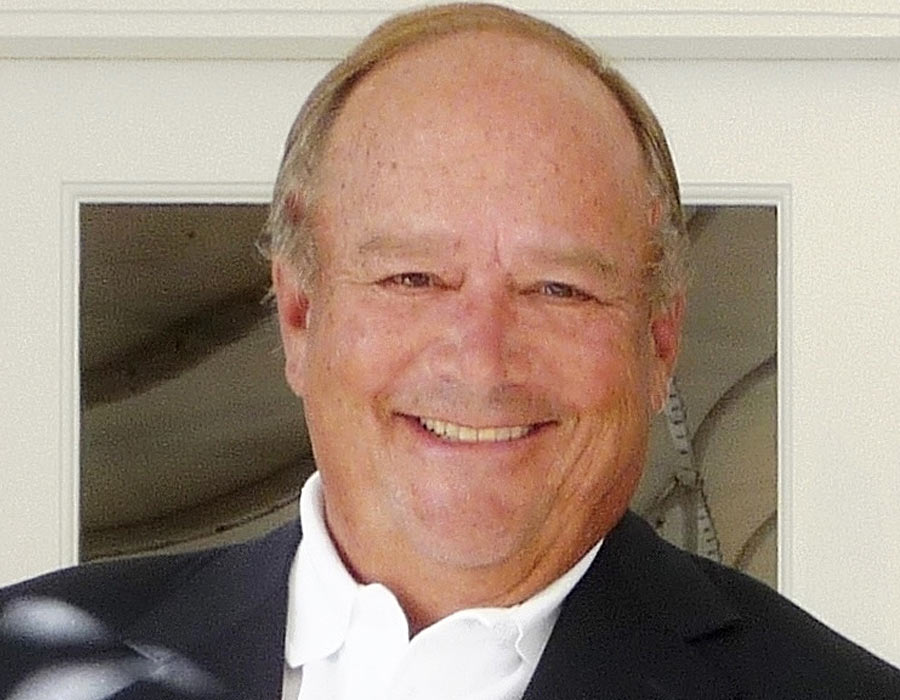Castor Oil to Elixir: The Evolving Role of Marketing
G. Kelly O’Dea
Odds are that when today’s physicians completed the long journey through med school, they didn’t expect they would also need the equivalent of an MBA to build a successful practice.
The information age, increased competition and Obamacare has spurred major change and challenge in virtually every aspect of physicians’ lives. The simple and uncomplicated days of Marcus Welby MD have faded well into the past.
PHYSICIAN MARKETING: PERSPECTIVE OF AN ADVERTISING LEGEND
Today’s Practice invited G. Kelly O’Dea, noted marketing expert and member of the Meridien Medical Advisory Board, to provide his perspectives and insights into the forces of change and how they affect physicians’ ability to compete successfully. This is the first in a series of interviews across a number of marketing issues. This interview begins with focus on the fundamental building blocks of marketing that must be addressed first.
TP: There has been a tremendous increase in marketing noise. Why do physicians need marketing at all?
Most physicians regard marketing as castor oil – you don’t like it but you know you need it. I understand that but would argue that marketing has become vitally necessary for survival, competitiveness and success in today’s market. It can and should become an elixir in driving successful practice. The problem is that most of marketing activity isn’t doing the job that needs to be done.
TP: How would you diagnose the state of marketing today?
Largely disappointing and wasteful. I would point to three main reasons why:
• Failure to understand what marketing is today. Too often, marketing is regarded as simply an advertising / PR function – “advertise and they will come”. In fact marketing should be about the total approach, founded on strategy and meaningful differentiation, which drives all activities at all points of patient contact.
• A vital first step is often missed: doing your homework on both the market and your practice. Most physician practices don’t do sufficient analysis of the market, competition and patient needs to identify how they can successfully fit into the market in a differentiated manner.
• Not understanding the new power of customer engagement. Patients have become Customers, armed with unprecedented access to information and the power to make choices. They will bypass you if you don’t provide a meaningful reason to be considered.
Most of today’s marketing has little meaningful differentiation. Do an experiment I call “The Wall Test”. Put a representative sample of competitive ads in your market on a blank wall. Now stand back and see how much differentiation you can find. Chances are you won’t find much. Now put your ads up against the competition. Chances are you and your brand won’t stand out. This means that there is considerable waste and lack of performance.
TP: So what’s the way forward?
For marketing to work, it must be founded first on analysis and then development of a differentiated brand. Only then can you begin to implement consistently across every point of customer contact. Otherwise you risk disappointment and waste.
Ask yourself a question: what is my brand and how is it differentiated in a meaningful manner that causes engagement with your prospects? The brand is embodiment of your relationship with the market you serve. It is the cornerstone idea that drives everything you do in marketing yourself or your practice, at every point of contact. If you don’t know your brand and how you’re different, that’s a problem that needs to be corrected. Only then will you see the vital role marketing can play in the success of your practice.
“Physician, brand thyself!”
TP: How can you tell if your marketing is working?
First of all, change your viewpoint. Make the transition from marketing as castor oil to marketing as an elixir in viewing marketing’s role in your success. Stop looking at marketing as merely an expense. There must be value delivery in the form of improved business and reputation.
Excellent brands are built like birds build nests, The desired outcome is known but it builds in stages. Here are some diagnostic questions to ask to see if your brand is building in the right direction:
• Are customer prospect inquiries increasing?
• Where are your inquiries coming from?
• Are your word of mouth referrals increasing?
• Are new customers increasing?
• Do you ask for their feedback?
• Why did they choose you?
• How are you doing with them once they become customers?
• Do existing customers stay with you?
• Are you beginning to stand out vs. your competitors?
The answers to the above questions help you understand whether or not you’re actually engaging with prospects and customers in a way that produces results.
In the next interview, we’ll focus on communications planning and execution in today’s new media marketplace. Your comments and questions are welcome.
ABOUT THE AUTHOR

G. Kelly O’Dea
Senior Advisor
Marketing Technologist
Described in a Harvard Business School case as a “global marketing pioneer, business builder and change leader”, Kelly is a broadly experienced executive with a consistent growth record across disciplines, major market categories, multiple countries and C-level positions in public and private companies from established to early stage.
Senior advisor to clients in such companies as IBM, Microsoft, Shell, Samsung, Boeing, Compaq, Ford, Fujitsu, AT&T, PepsiCo, Kraft and Unilever. Resume includes: President – FCB (Foote, Cone and Belding Worldwide) (NYSE: IPG); Vice Chairman/Global Operations – Bozell Worldwide; President – Worldwide Client Services, Ogilvy & Mather (NASDAQ: WPPGY). At each company, led and restructured the global client mamagement organizaton around the 7S and transnational network models, leading to significant growth in revenue, reputation, operating profit.
Business builder, leading teams that won over $2.5 billion in new business from clients such as IBM, Ford, Jaguar, AT&T, Samsung, Compaq, Boeing, Fujitsu and others. Co-created well known global brand campaigns for AT&T, Ford and Boeing.
Co-founder of Alliance for High Performance Leadership (AllianceHPL), a private next economy strategic services firm focused on applied innovation. The subject of a Harvard Business School case, the firm has specialized in business / market strategies, brand development, marketing technology and design for large clients like Ford, Samsung and Lenovo and many early stage firms focused on new technology applications.
Free time: public service, competitive sport and education, includng six-term Chairman of Outward Bound International, Chairman of TheThunderbird School of Global Management, Director on the University of Portland Board of Regents.
Specialties: Strategic shifting in changing environments. SME: business / marketing strategy, new ventures, new tech / media, turnarounds, change leadership. Broad applied tech experience.
FEATURED ARTICLES
5 Tips to Help Speech, Occupational and Physical Therapists Get Paid
5 Tips to Help Speech, Occupational and Physical Therapists Get Paid By Lisa Eramo Ensuring accurate
7 Tips to Help Mental Health Providers Get Paid
7 Tips to Help Mental Health Providers Get Paid Most mental health providers go into private practice because
How Data Analytics Can Improve the Financial Performance of Your Billing Clients
How Data Analytics Can Improve the Financial Performance of Your Billing Clients The healthcare industry is rapidly
7 Signs It’s Time to Upgrade Your Healthcare Website
7 signs it’s time to upgrade your healthcare website. An outdated, non-optimized healthcare website is doing your
Castor Oil to Elixir: The Evolving Role of Marketing
Castor Oil to Elixir: The Evolving Role of Marketing G. Kelly O'Dea Odds are that when today’s
The Influence of Technology on Tomorrow
Superior Patient Care, Predictive/Preventative Protocols, Stronger Referrals, and 5-Star Physician Rating. In Medical School, MBA Programs or






